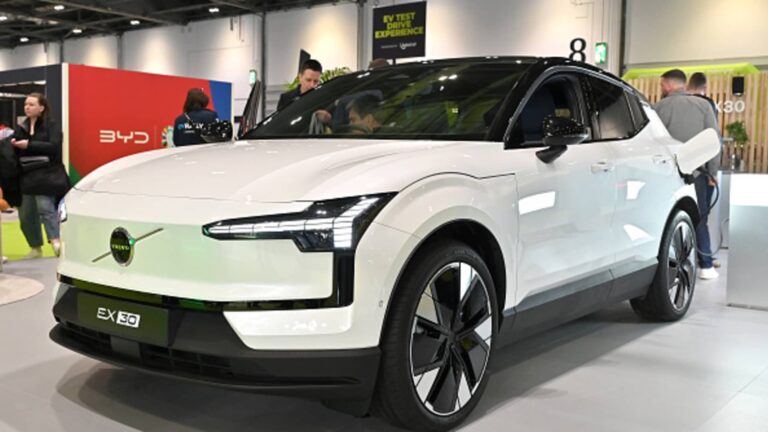Volvo Cars Hikes 2024 Profit Amid Tariff Relocation Considerations
Volvo Cars, the well-known Swedish automotive brand, has recently announced an optimistic outlook for its 2024 profits. In a world where tariffs are reshaping the automotive landscape, the company is not only preparing for increased earnings but is also contemplating potential relocations to mitigate tariff impacts. This strategic move is crucial as the global automotive market continues to grapple with rising costs and shifting trade policies.

According to recent reports, Volvo has projected its operating profit to rise by approximately 15% in 2024, suggesting that the company anticipates overcoming challenges posed by tariffs. In 2023, volatility in steel and aluminum prices affected the automotive industry significantly. However, Volvo Cars is adapting its strategies to ensure resilient growth amid such upheaval. The company plans to enhance its operational efficiency and leverage its strong brand presence to pass on some of the escalating costs to consumers.
Impact of Tariffs on Automotive Industry
The issue of tariffs is not new to the automotive sector. For instance, the U.S. enacted tariffs on steel and aluminum imports in 2018, resulting in increased production costs. A study conducted by the Peterson Institute for International Economics estimated that these tariffs could raise vehicle prices by an average of $1,200. With the ongoing geopolitical tensions and trade policy shifts, the necessity for manufacturers to explore cost-saving measures and alternate manufacturing locations has never been more pressing.
In response to these tariffs, many companies, including Volvo, are considering relocating production facilities to countries with lower tariff rates or more favorable trade agreements. For Volvo Cars, this means evaluating its current production landscape. The company manufactures vehicles at its major plants in Sweden and Belgium, but it is increasingly looking towards Asia, where production costs are lower, and tariff barriers may be less impactful.
Consumer Preferences Shifting Towards Electric Vehicles
As Volvo Cars plans for the future, it is also embracing the burgeoning electric vehicle (EV) market. The automaker has committed to becoming a fully electric car brand by 2030, aligning with global trends that show an insatiable hunger for sustainable transport solutions. According to a recent report by BloombergNEF, global EV sales are projected to reach 54 million by 2040, representing 58% of the total passenger car sales.

Volvo’s commitment to EVs puts it in an ideal position to attract a growing customer base concerned about climate change. The influx of new electric models, such as the all-electric Volvo XC40 Recharge, has already shown strong sales performance. In Q1 2023 alone, EV sales accounted for approximately 12% of total Volvo deliveries, marking a year-on-year increase of 30%.
Strategic Alternatives and Future Considerations
The consideration of relocating production isn’t just a reactive measure to tariffs. It also reflects Volvo’s proactive approach to future-proofing its operations. A recent survey indicated that 64% of global automotive executives are contemplating shifting their supply chains to avoid tariffs and geopolitical risks. This sentiment is echoed in Volvo’s strategic framework, which emphasizes agility in operations, access to technological advancements, and sustainability in production.
Moreover, the potential relocation could open up new markets for Volvo. With lower operational costs and reduced tariffs, the company could expand its competitive edge in regions like Asia-Pacific, where automotive consumption is projected to rise significantly. According to the International Organization of Motor Vehicle Manufacturers (OICA), the Asia-Pacific region accounted for 54% of global vehicle sales in 2021, illustrating the importance of this market segment.
Conclusion
Volvo Cars is strategically positioning itself for a profitable 2024, despite the challenges posed by tariffs and external market forces. The company’s decision to consider relocation as a viable option reflects its commitment to sustainability and adaptability in an ever-evolving landscape. With the electric vehicle market growing exponentially and changing trade dynamics influencing production strategies, Volvo Cars is determined to emerge as a leader in the future of mobility. Consumers can look forward to innovative, cost-effective solutions as the company charts its course through these intriguing times.



